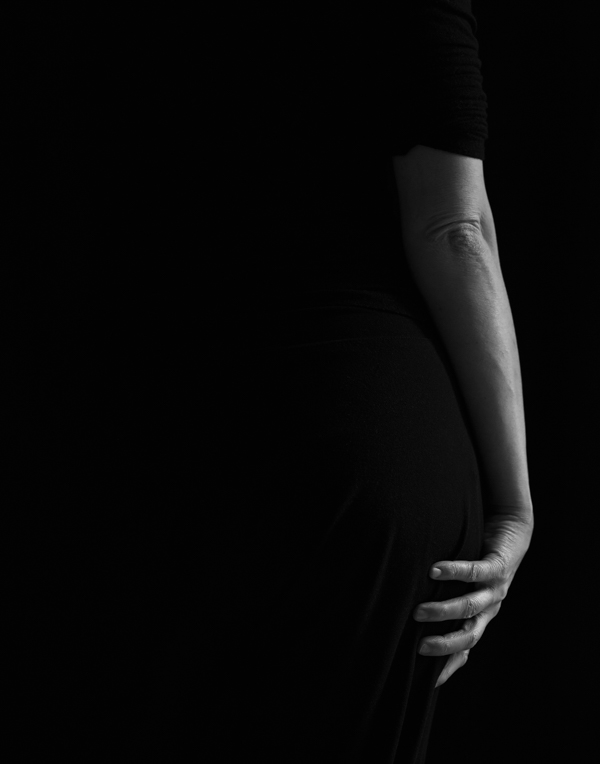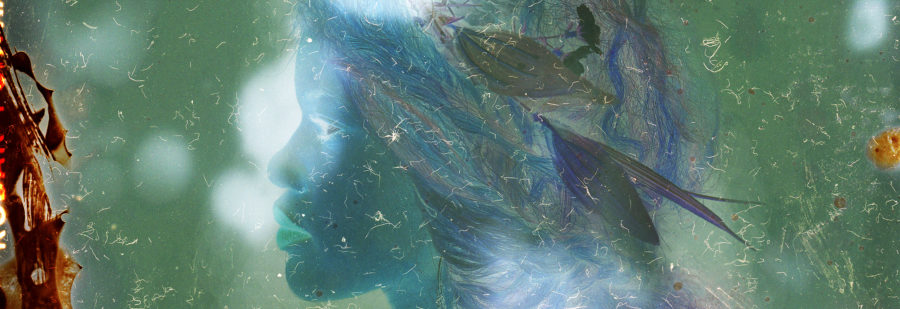Judith Stenneken is an exhibiting artist in PCNW’s 23rd annual juried exhibition, curated by Kris Graves.

Untitled #1, 2012
Archival pigment print
Edition 4/5
$1800
Courtesy of Marshall Contemporary
Please contact Erin Spencer at espencer@pcnw.org with questions or to purchase.
Tell us about yourself, where you’re from, and when you first discovered your love of photography.
I am a visual artist working in photography and video. I grew up in northern Germany, not far from Denmark and close to both the Baltic Sea and the North Sea. I loved growing up in close proximity to waters, with long walks in cool winds. It grounds you. Photography does the same for me. I discovered it in my mid-twenties, when I had to go through a rough patch in my life. I found peace in the observation and focus required to take a good image…and I got hooked.
Tell us about the work that was selected to be included in Distinction by Kris Graves.
The image is a self-portrait. I played with capturing body parts and this one stood out. I like how the arm and hand seem to flow alongside the shape of the body, framing it, but also holding on to it. Another important player in this image is the negative space: on first sight, it almost seems the arm floats in space, detached from the body. I like this interplay of connection and disconnection.
Personally, it is a hard image for me to look at. I have an ambiguous relationship to my hands. As long as I can recall they have always looked like the hands of an old women. Hiding them became a habit and yet some days I think of them as old wise souls, here to teach me something.
Is the selected work part of a larger body of work?
The image is part of my project “ILLUMINATE NATURALLY IN DARKNESS.” In it I use images of the journey, the voyager and transitory spaces (like hotel rooms) as metaphors to describe transition as the sole constant in life and in-betweenness as the only state of being. The concepts of ‘departure’ and ‘arrival’ dissolve as the traveler keeps moving – a gravity to constant change. The voyager’s home becomes the hotel room and the airplane. Spaces to pause but never to dwell.
I think we are in a phase in which change happens at an accelerating pace. It can leave one dizzy, disoriented and overwhelmed at times – like a loss of control. I think the acceleration of change forces us out of our comfort zones, out of our habits and into adjustments. It forces us to re-act. Coevally it offers a chance to embrace core conditions of life that we usually prefer to ignore: impermanence and uncertainty. This is where Illuminate Naturally In Darkness lives. It asks – how can we embrace this uncertainty? How can we accept living with change?
Who / what are your biggest influences?
It’s hard to single out particular influences. To me it’s one big ocean of influences: the people I meet, the books I read, the conversations I have. They all mingle, interact and hopefully lead to interesting questions and ideas. To favor one or two over the rest would only speak to the amounts not included. That being said, I am happy to share two books I am currently re-reading: Carlo Rovelli’s ’Seven Brief Lessons of Physics’ and ’The Order of Time’.
Are you making work in response to the current pandemic?
I see an overlap between the current situation and my new body of work ~a mountain is only a slow wave~, which I have been working on since 2016. It deals with our individual and societal potential for adaptability in times of change. When I started this project I was thinking about adaptability due to technology’s role in changing our lives rapidly. There is a good chance that Covid-19 is not necessarily shifting the direction we are moving towards, but instead is an accelerator and therefore a potential eye-opener as to what works and what doesn’t in an interconnected, interdependent, world-wide community that we are. We understand that now, the fact that we are truly interconnected. My actions can literally influence if you live or die and vice versa. If anything, this moment teaches us about the responsibility we have for each other. If we use this moment right, it can be a chance for us to ask ‘how’ we want to live together, what shape our interconnectedness should take.
PCNW’s annual juried call for entry provides exhibition opportunities for artists and directly supports our programs, scholarships, and labs at PCNW. This helps ensure access to photography for many future generations of creatives. We know you have many options for submitting your work, so please tell us why you chose PCNW? What are your thoughts and experience with submitting your work to different calls?
The community aspect has become more important to me over the years. Of course, I am happy to be able to show my work. But as importantly, I love the fact that my participation can help support your programs, which in return help people learn about photography and be encouraged to explore their own creativity. In particular, I am a fan of the variety of scholarships PCNW is offering to young people who do not always have the means to follow their dreams, and I appreciate that you help with that.



